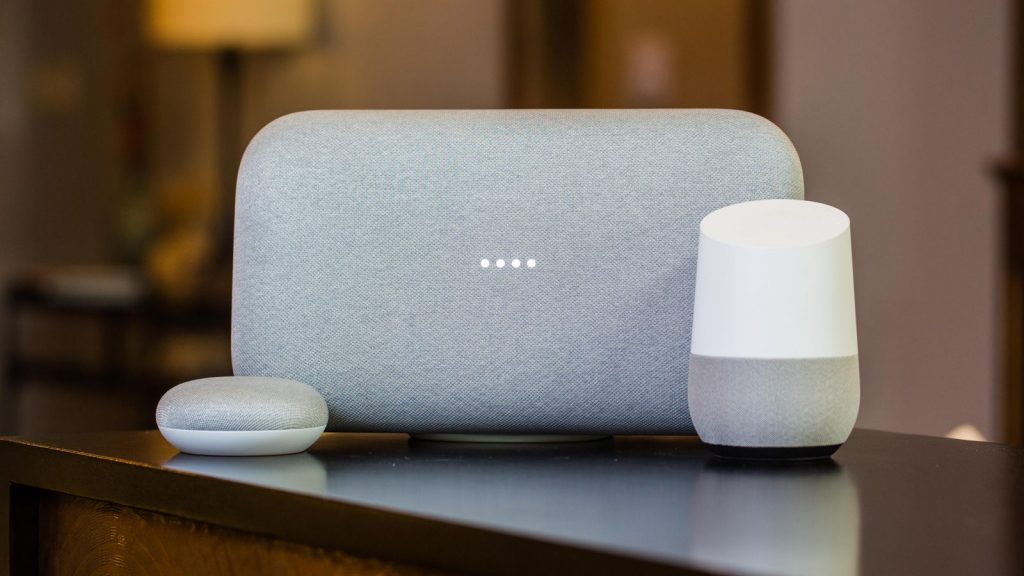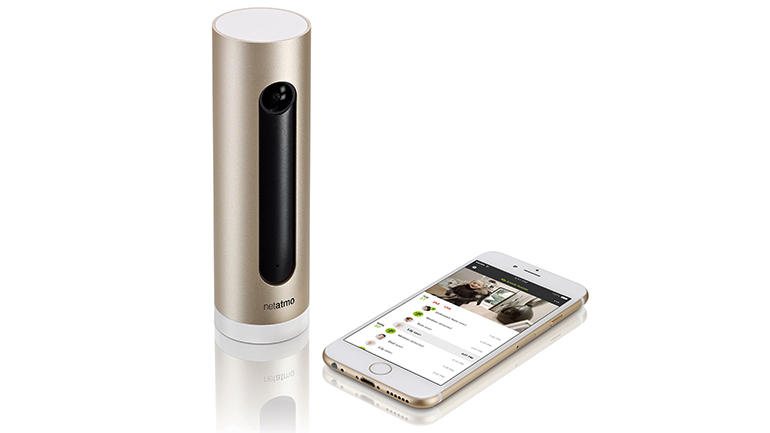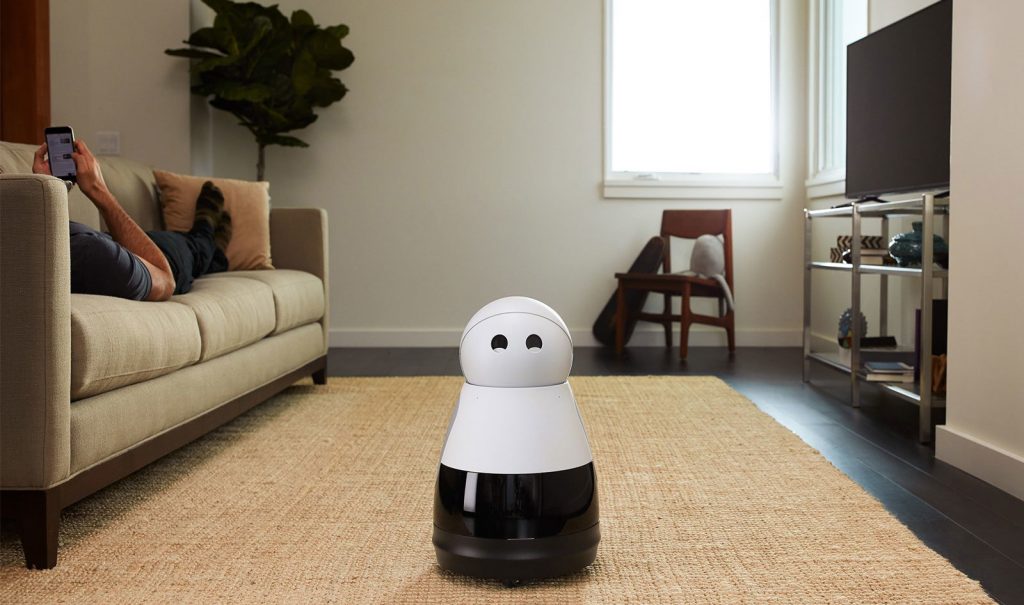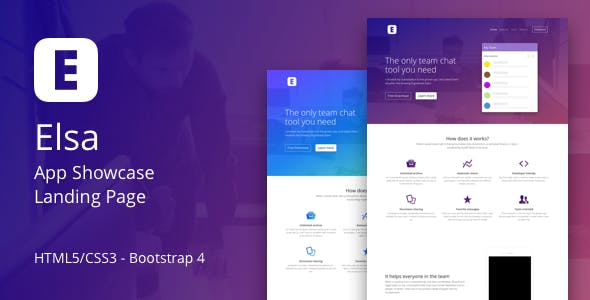Tech
Best Artificial Intelligence Devices And Apps

The internet has evolved and with it, so has technology. The year 2019 has seen an increasing presence of artificial intelligence in almost every field and if you are looking at investing in AI gadgets and apps, then these are the ones for which you should go!
1. Fyle

Picture credits: entracker.com
AI enabled apps have come in the form of a blessing in disguise. Fyle is exactly one such app. Available for iOS users, this app lets you track, scan and upload all your financial expenses. Called intelligent expense marketing, this app comes powered with artificial intelligence, keeps a track of the investments and basically, increases a company’s overall performance!
2. Google Home

Picture credits: cnet.com
Sticking to Google’s theme of using AI in all of its devices, this particular device uses a combination of machine learning and artificial intelligence. Doubling up as a personal assistant to use on the go, the Google Home looks up your questions and answers them the best way possible. Although it may not have the capabilities of answering like a human just yet, the Google Home is still one of the best devices using AI in recent times.
3. Netatmo Welcome

Picture credits: zdnet.com
The best depiction of how AI is used in everyday life, the Netatmo Welcome is the security camera every home needs to have. By distinguishing between intruders and homeowners, this device uses a combination of AI and machine learning to act as the perfect guard. Furthermore, this device also sets off alarms if your house is on fire and stores videos for a certain period of time. If you need an alarm, then this is the device you need!
4. Kuri Home Robot

Picture credits: engadget.com
While the Sophie robot has been making the headlines for all the right reasons, the fact that it isn’t as easy to avail is still a problem. The Kuri Home Robot, on the other hand, is similar in functionality and quite affordable. From answering questions, to performing basic chores around the house and to playing music out loud, this robot is essentially an extremely efficient assistant. By using the associated voice app, you can also tweak and change the settings so the robot can wake you up when necessary. Unfortunately, this robot isn’t available for sale yet, but can be preordered!
5. Elsa

Picture credits: themerforest.com
Designed to help better the English of those who can’t speak the language, English Language Speaking Assistant, ELSA, is an app which is available for Android phones. Widely used by those who come from places where English isn’t the first language, ELSA is extremely helpful for those wanting to learn English. This app is designed to help users learn and improve their English learning and pronunciation skills in a span of 4 weeks! Not only does it help you learn the language, it also provides you with a full fledged report which shows what your progress has been like since you started using the app!
Artificial intelligence, when used the right way, has more than its fair share of benefits. From home devices to language skills, these devices are the way to go when it comes to making your lives easier. If you think we missed out on any other devices like these, comment and let us know!
Tech
Paytm Grants ₹16.7 Crore ESOPs To Employees Under 2019 Stock Option Plan

Paytm parent One 97 Communications has granted fresh employee stock options (ESOPs) worth about ₹16.7 crore to eligible staff under its 2019 ESOP scheme, highlighting a stronger push toward employee ownership and retention. The grant covers 1,23,908 options, each convertible into one equity share with an exercise price of ₹9, significantly below the prevailing market price. At Paytm’s recent share price levels, this translates into a notional value of around ₹16.6–16.7 crore for employees.
The ESOPs are designed to align employee incentives with Paytm’s long-term growth, giving high-performing team members a direct stake in future value creation. As the options vest and are exercised, eligible employees can participate in potential upside from Paytm’s expanding fintech and payments ecosystem, subject to standard ESOP vesting conditions. The company has also confirmed that the scheme complies with SEBI’s share-based benefit regulations.
This ESOP grant comes soon after Paytm’s payments arm secured key RBI approvals to operate as a payment aggregator across online, offline and cross-border transactions, strengthening its regulated payments stack. Coupled with rising operating revenues, the fresh stock options signal management’s continued focus on attracting and retaining top talent even as profitability remains under pressure. For SEO, key phrases around “Paytm ESOP grant,” “₹16.7 crore employee stock options,” and “One 97 Communications employee ownership” capture the core update for search and news discovery.
Latest News
Apple’s iOS 18.7 vs iOS 26: Which Update Should You Choose for Your iPhone in 2025?

Apple’s recent iOS 18.7 rollout provides a secure alternative to the visually revamped iOS 26, empowering iPhone users to choose between system stability and next-generation features. While iOS 18.7 focuses on important security updates and bug fixes, it maintains the familiar iOS experience for users of older devices like iPhone XS, XS Max, XR, and SE models up to the 16e. The update is lightweight—about one-fifteenth the size of iOS 26—which means quicker downloads and less storage consumption. It’s designed for reliability and fast installation, making it ideal for users who prioritize a stable and secure operating system over design changes.
In contrast, iOS 26 introduces Apple’s ambitious “Liquid Glass” interface with a transparent look across apps, enhanced widget and lock screen customization, smarter Siri, and improved camera controls. These innovations, however, come with a larger update size and compatibility exclusive to newer iPhones beginning from the iPhone 11 series. While early adopters can enjoy the futuristic interface and AI-powered upgrades, major OS launches may present initial bugs or app compatibility issues that cautious users typically wish to avoid.
Choosing between iOS 18.7 and iOS 26 depends on each user’s priorities—those seeking guaranteed stability and fast security fixes should consider sticking with iOS 18.7, while users excited about premium features and visual changes should migrate to iOS 26 if their device supports it. Both updates are available through Software Update settings, and Apple will support iOS 18.7 for only a limited duration, eventually encouraging all users to transition to the latest platform. This dual update strategy ensures every iPhone user can safely update their device for a seamless and secure experience in 2025.
Tech
Apple’s iOS 26 to Automatically Pause FaceTime Calls Upon Nudity Detection

Apple’s upcoming iOS 26 introduces a new privacy-focused safety feature for FaceTime that automatically pauses both video and audio calls when nudity is detected on camera. This feature, discovered in the iOS 26 developer beta, is part of Apple’s expanded Communication Safety suite aimed primarily at protecting children from exposure to inappropriate content during live video chats. When nudity is detected, FaceTime freezes the call and displays a warning message, allowing users to either resume or end the call.
The nudity detection runs entirely on-device using advanced machine learning, ensuring that no images or videos are sent to Apple’s servers, thereby preserving user privacy. Although originally designed for child accounts as part of family safety tools announced at WWDC 2025, the feature currently appears active on all accounts in the beta version, including adults, which has sparked discussion about its broader application. Apple stresses that this local processing method keeps user data private while providing real-time protection against sensitive content during FaceTime calls.
Alongside this new safety measure, iOS 26 brings several other updates across the Apple ecosystem, including a new Liquid Glass design and enhancements to Messages, Wallet, and CarPlay. While the FaceTime nudity detection feature has not yet been confirmed for the final public release, its presence in the beta underscores Apple’s commitment to balancing user safety with privacy in an increasingly connected world. The full rollout later this year will clarify how widely the feature will be applied and whether users will have control over its activation













站群程序
November 7, 2025 at 12:30 am
搭载智能站群程序,自动化搭建与管理,为SEO项目提供核心驱动力。站群程序
J88
November 8, 2025 at 7:59 pm
Đến với J88, bạn sẽ được trải nghiệm dịch vụ cá cược chuyên nghiệp cùng hàng ngàn sự kiện khuyến mãi độc quyền.
ios超级签
November 11, 2025 at 1:20 am
苹果签名,苹果超级签平台,ios超级签平台ios超级签苹果企业签,苹果超级签,稳定超级签名
iwin
November 13, 2025 at 9:33 am
iwin – nền tảng game bài đổi thưởng uy tín, nơi bạn có thể thử vận may và tận hưởng nhiều tựa game hấp
站群程序
November 13, 2025 at 10:34 am
采用高效谷歌站群策略,快速提升网站在搜索引擎中的可见性与权重。谷歌站群
GO88
November 19, 2025 at 10:54 am
Tham gia cộng đồng game thủ tại Go88 để trải nghiệm các trò chơi bài, poker phổ biến nhất hiện nay.
MM88
November 21, 2025 at 9:40 am
Với giao diện mượt mà và ưu đãi hấp dẫn, MM88 là lựa chọn lý tưởng cho các tín đồ giải trí trực tuyến.
Kuwin
November 23, 2025 at 8:51 am
kuwin sở hữu kho game đa dạng từ slot đến trò chơi bài đổi thưởng, mang đến cho bạn những giây phút giải trí tuyệt vời.
Vulkan Vegas Testbericht
December 20, 2025 at 9:04 pm
Das weltweit hoch bewertete Spinbetter Casino zeichnet sich dadurch aus, dass es die beliebtesten Spiele der besten Softwareanbieter auf dem Glücksspielmarkt anbietet.
NYX Interactive, Oryx Gaming, Pragmatic Play, 1×2 Network, Microgaming, IGT, NeoGames,
Realistic Games, Play ‘N GO und Ezugi zusammen mit anderen Spieleentwicklern bringen Ihnen die Standard-Tisch- und
Kartenspiele in diesem Internet-Casino. Einige der Live-Dealer-Tische können Tausende von Spielern auf einmal fassen, so dass Sie nie Probleme
haben werden, einen Platz zum Spielen von Live-Casino-Spielen zu finden. Auch das beliebte Kartenspiel Blackjack darf nicht fehlen; dieses Spiel bietet innerhalb von Spinbetter vier verschiedene Varianten. Gleichzeitig stehen Roulette-Spiele mit Live-Dealern zur Verfügung, die
den Spielern zu jeder Tageszeit große Aufregung bieten. In der Kategorie der Glücksspielautomaten finden Sie alle verfügbaren Spielautomaten, einschließlich der Standardautomaten sowie
solcher mit progressiven Jackpots, die kontinuierlich wachsen.
Von nun an wird die Schnittstelle bei jedem Besuch dieses
Browsers, dieser Anwendung oder dieses Geräts automatisch Ihren Benutzernamen und Ihr Passwort ersetzen. Dazu kreuzen Sie im
Autorisierungsfenster (wo Sie Ihren Benutzernamen und Ihr Passwort angeben)
das Kästchen neben dem Satz “Remember me” an. Außerdem können die Benutzer das Konto mit mehreren Kontakten gleichzeitig verknüpfen,
was in Zukunft sehr nützlich sein wird, wenn ein Spieler den Zugang zu Telefon oder E-Mail verliert.
References:
https://online-spielhallen.de/quickwin-casino-aktionscode-ihr-schlussel-zu-exklusiven-vorteilen/
Future of online gambling
December 27, 2025 at 12:44 pm
The Ville Resort Casino offers an extensive range of gaming
options that cater to both casual players and seasoned gamblers.
Sign up for news, offers, and invitations to the things we love to share and enjoy So not
only are there tons of things to do outside the Casino however you can enjoy a wide range of entertainment within the casino walls.
Islands, reefs, sundrenched beaches that go on forever.
The playful spirit of modern Australia comes
to life with world-class cuisine and entertainment
in lush tropical surrounds at The Ville. For those who want a
residence, not just a hotel room, the spacious Corner Suites make for a luxurious retreat.
Check out our How to Play Guides if you want to know more about our games.
The Ville Resort Casino, located in Townsville, Queensland,
Australia, offers a luxurious and exciting destination for both leisure and gaming enthusiasts.
There is lots on at The Reef Hotel Casino from table and electronic gaming action, Keno and
TAB, thrilling promotions, great live music, exciting sports
viewing, special events – check it out here.
This article about a hotel or resort in Oceania is a stub.
However, the most talked-about casinos are the Queen’s
Wharf Brisbane. There are several new casinos in the pipeline
in Queensland.
References:
https://blackcoin.co/roll-xo-online-casino-official-site-with-pokies-and-games/
Kingmaker casino slots
December 27, 2025 at 7:43 pm
The Microsoft campus is the informal name of Microsoft’s corporate headquarters,
located at One Microsoft Way in Redmond, Washington. With a ULI
membership, you’ll stay informed on the most important
topics shaping the world of real estate with unlimited access to the award-winning Urban Land magazine.
Buildings include a variety of workspaces to support different working styles,
from team neighborhoods and focus rooms to informal meeting areas and recreational
spaces.
Spark creativity and collaboration in any learning environment
with a variety of Microsoft 365 apps and free templates
to choose from. Your files and memories are secure in the cloud with 5GB of storage for free and 1TB with a paid Microsoft 365 subscription. The Microsoft 365 Copilot app brings together your favorite
apps and Copilot in one intuitive platform.
References:
https://blackcoin.co/slot-machine-tutorial-for-beginners/
https://precise.co.za/employer/paypal-roulette-play-online-roulette-with-paypal-for-real-money
December 29, 2025 at 8:59 am
casino avec paypal
References:
https://precise.co.za/employer/paypal-roulette-play-online-roulette-with-paypal-for-real-money
https://seven.mixh.jp/answer/question/best-paypal-casino-sites-uk-2025-gambling-list-you-can-trust
December 29, 2025 at 9:17 am
online roulette paypal
References:
https://seven.mixh.jp/answer/question/best-paypal-casino-sites-uk-2025-gambling-list-you-can-trust
https://macrorecruitment.com.au
December 30, 2025 at 2:02 pm
online casino accepts paypal us
References:
https://macrorecruitment.com.au
hirekaroo.com
December 30, 2025 at 2:18 pm
online betting with paypal winnersbet
References:
hirekaroo.com